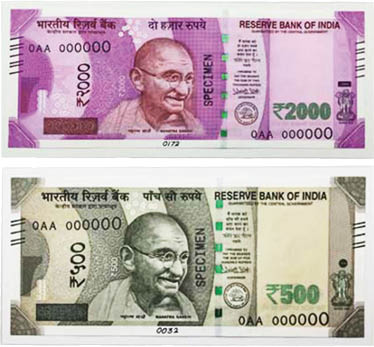 In a 40-minute televised address on Tuesday, 8th November, 2016, Prime Minister Narendra Modi made an announcement that left India shocked and then in a frenzy! He invalidated the Indian currency notes of denominations Rs.500 and Rs.1000, saying these “will not be legal tender from midnight tonight” and “just worthless piece of paper.” This move was enforced as a strong measure to curb the escalating ‘black money’ issue that has been increasingly engulfing the nation. These notes will however be valid for transactions related to booking of air tickets, railway bookings, government bus ticket counters and hospitals till the midnight of November 11 and 12. Though Banks and ATMs remained shut on 9th November, cashless transactions wouldn’t be affected at all through this transition period.
In a 40-minute televised address on Tuesday, 8th November, 2016, Prime Minister Narendra Modi made an announcement that left India shocked and then in a frenzy! He invalidated the Indian currency notes of denominations Rs.500 and Rs.1000, saying these “will not be legal tender from midnight tonight” and “just worthless piece of paper.” This move was enforced as a strong measure to curb the escalating ‘black money’ issue that has been increasingly engulfing the nation. These notes will however be valid for transactions related to booking of air tickets, railway bookings, government bus ticket counters and hospitals till the midnight of November 11 and 12. Though Banks and ATMs remained shut on 9th November, cashless transactions wouldn’t be affected at all through this transition period.
Modi has also announced that new notes of denominations Rs.2000 and Rs.500 will be introduced and circulated from November 10, 2016. All notes in lower denominations (Rs.100, Rs.50, Rs.20, Rs.10, etc) and all coins would continue to be valid. Citizens have been given 50 days (from November 10 to December 30, 2016) to deposit their invalidated Rs.1000 and Rs.500 notes in their respective banks. Those who miss this deadline can deposit their notes in designated RBI offices till March 31, 2017, after filling a declaration form along with proof and reasons. One can also exchange these notes for lower denomination currency notes at banks and post offices, on furnishing identity cards (PAN, Aadhaar and Election Card) from November 10 to November 24, with a daily limit of Rs.4000. Due to the massive ongoing logistical readjustments, ATM withdrawals have been restricted to Rs.2000 per day and bank withdrawals to Rs.10,000 a day and Rs.20,000 a week, which will gradually increase.
Urging the citizens to ignore the temporary hardships caused by this move, he said, “In a country’s history, there comes a moment when people will want to participate in nation building and reconstruction. There is a need for a decisive war against the menace of corruption, black money and terrorism – these festering wounds which make the country hollow from within.”
As Banks and ATMs remained closed, lakhs of people scrambled to buy groceries and tickets for public transport. Many commuters were locked into long traffic jams as toll plazas refused to accept the notes that were abolished at midnight. However, National highways charged no toll till midnight of 11 November. Toll booths on other major freeways and State-run petrol pumps and government hospitals have been asked to accept old notes till then.
The move has been lauded by banks, financial experts and entrepreneurs. “This one decision will change the course of how people spend and how they keep their money,” said Finance Minister Arun Jaitley, emphasizing on the government’s focus to lead India into a ‘cashless economy’ to successfully overcome money-laundering, corruption and black or untaxed money. Infosys founder NR Narayan Murthy declared it a ‘masterstroke’! Opposition leaders say the move will hurt the poor, many of whom do not have bank accounts and keep their savings in cash
- હસો મારી સાથે - 4 May2024
- ભાઈ – બહેન - 4 May2024
- સિકંદરાબાદની ચિનોઈ દરેમહેરને 2024 આઈએનટીએસીએચ હેરિટેજ એવોર્ડ મળ્યો - 4 May2024
